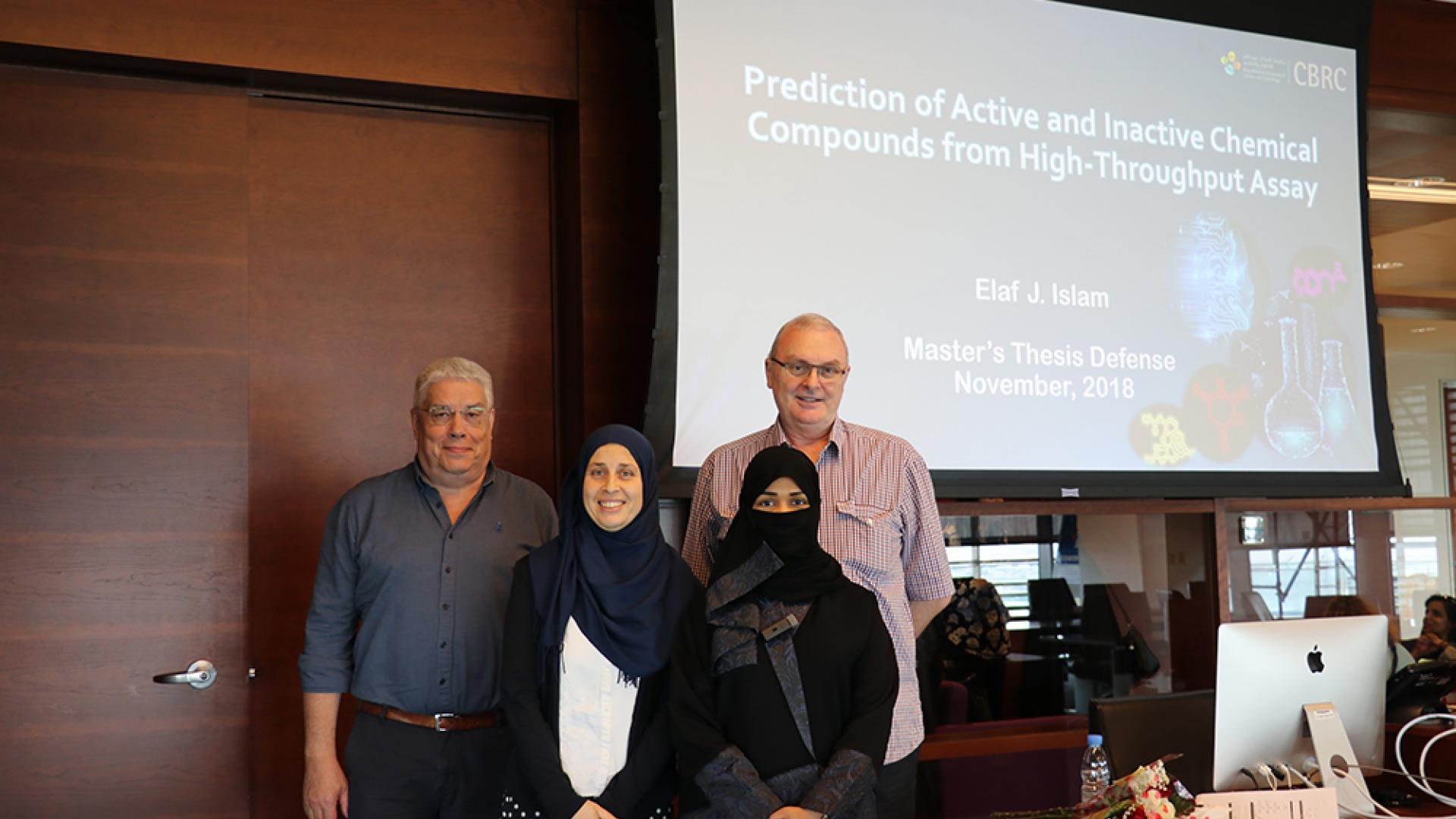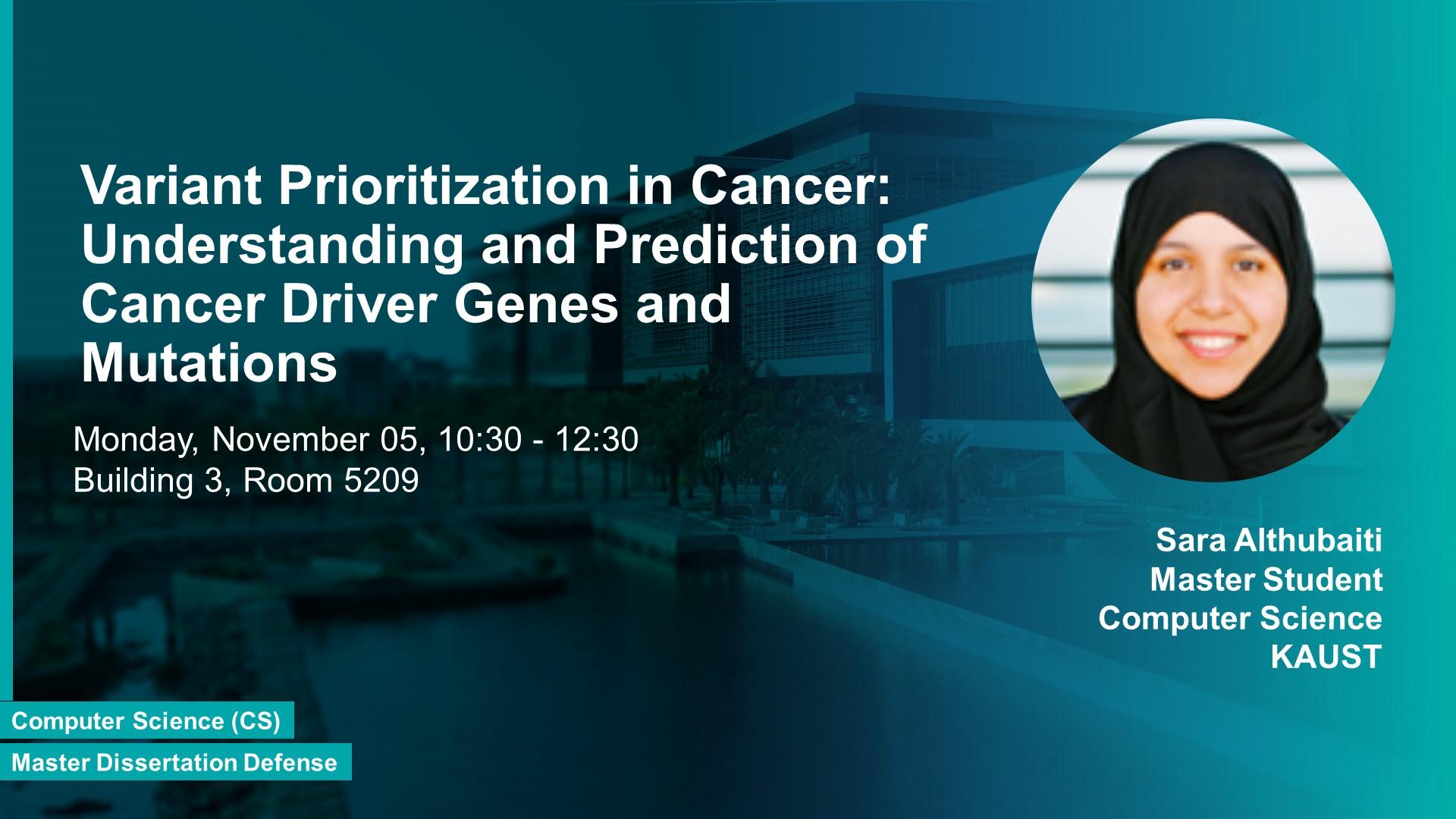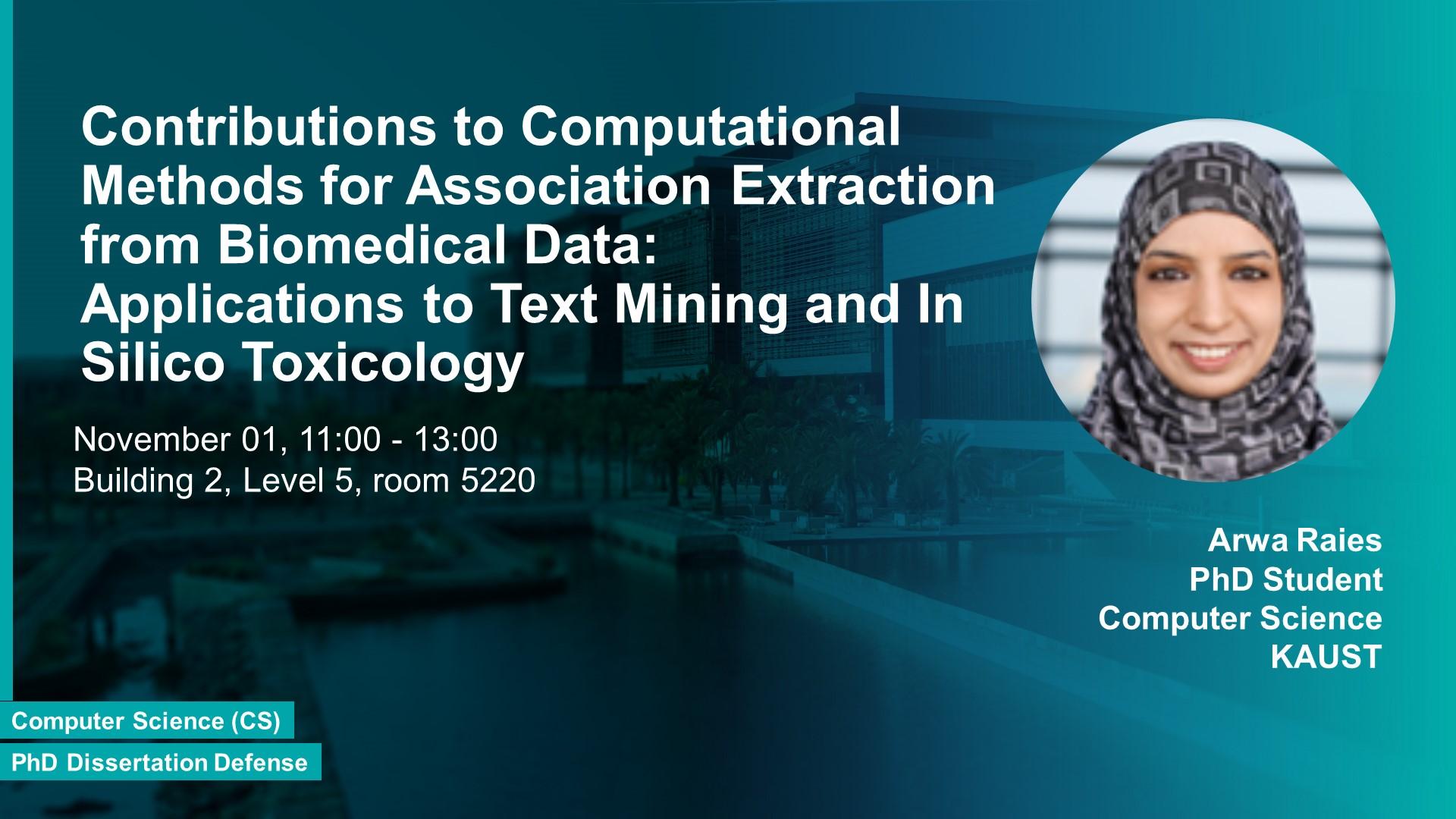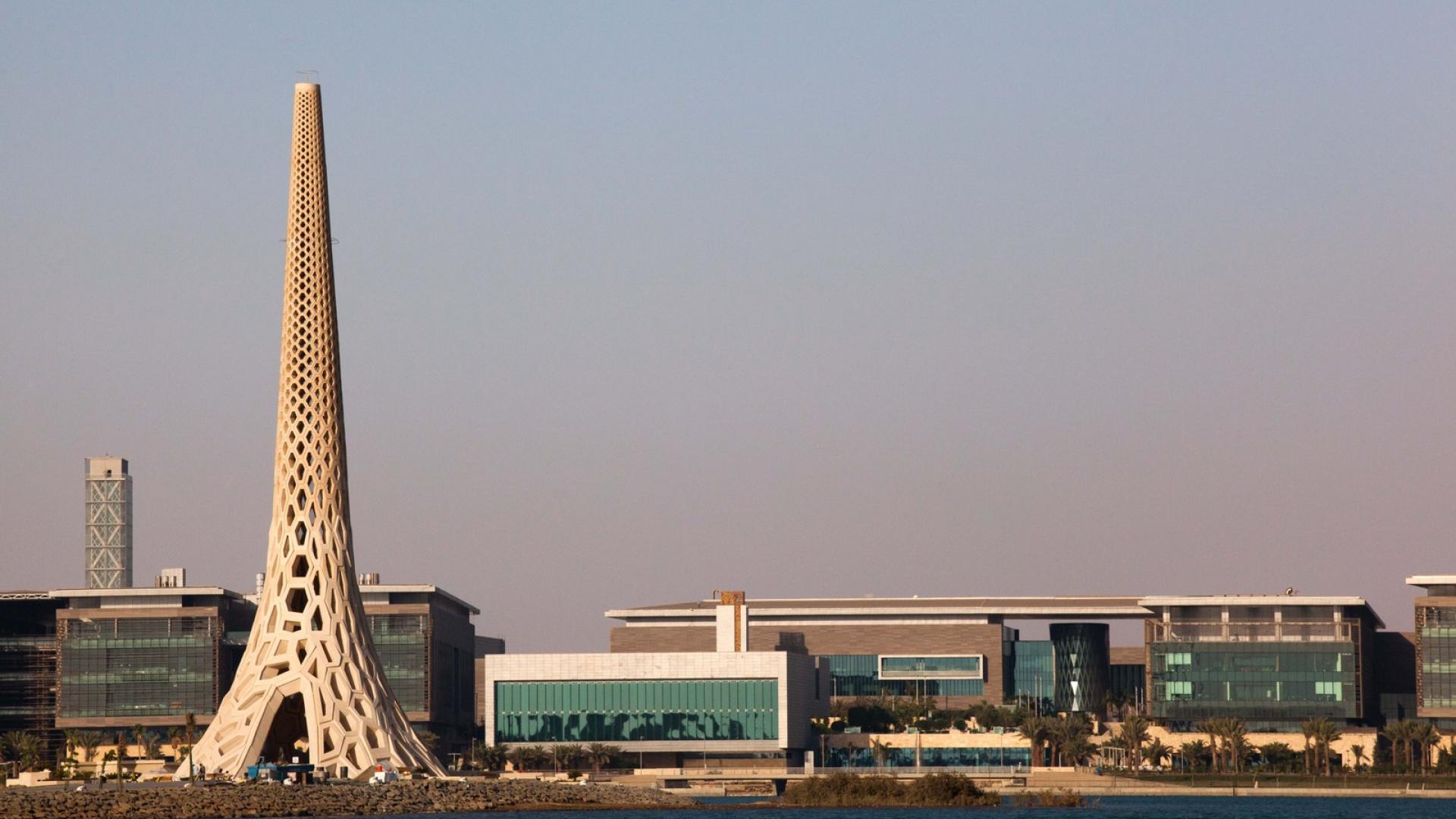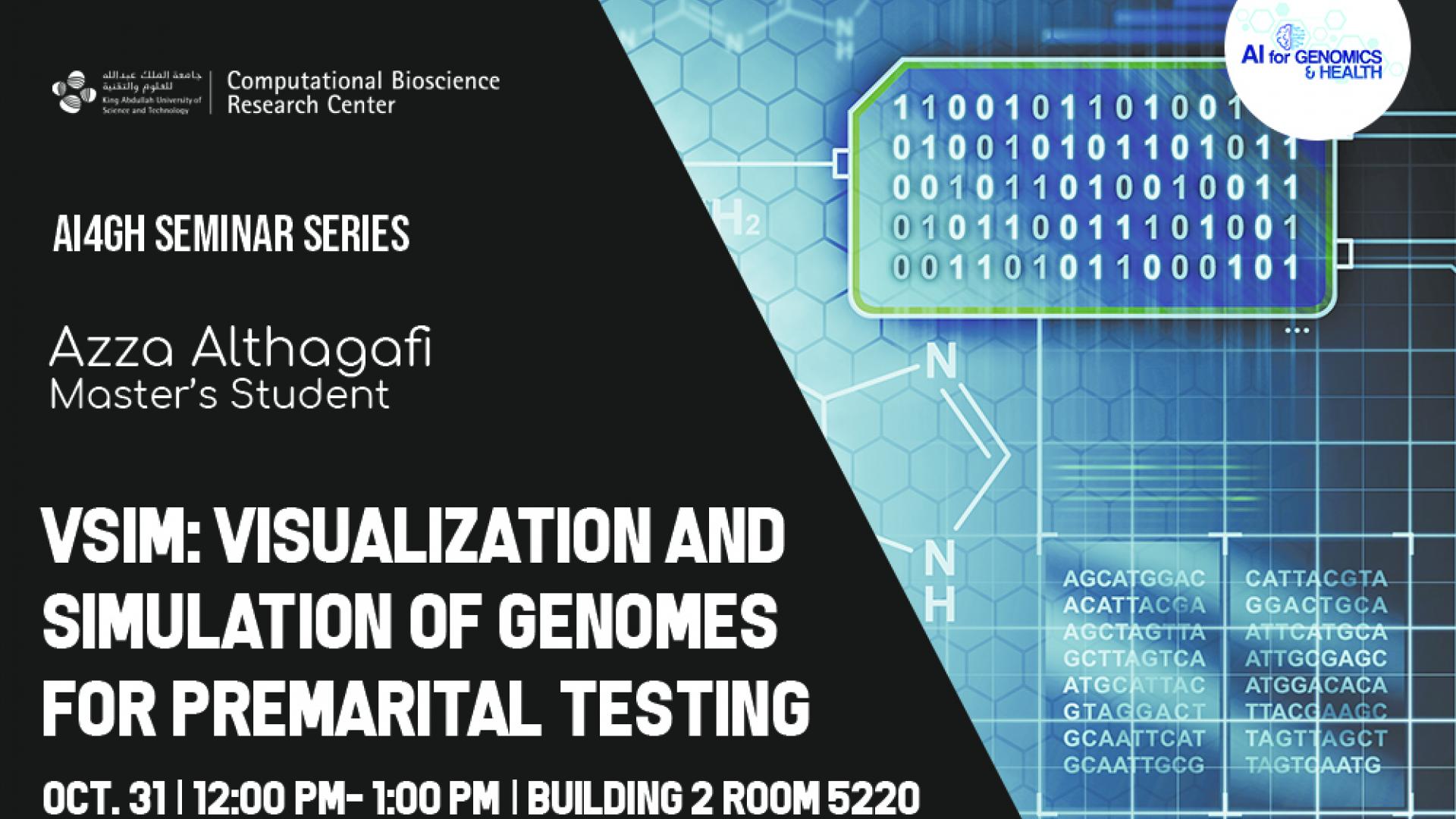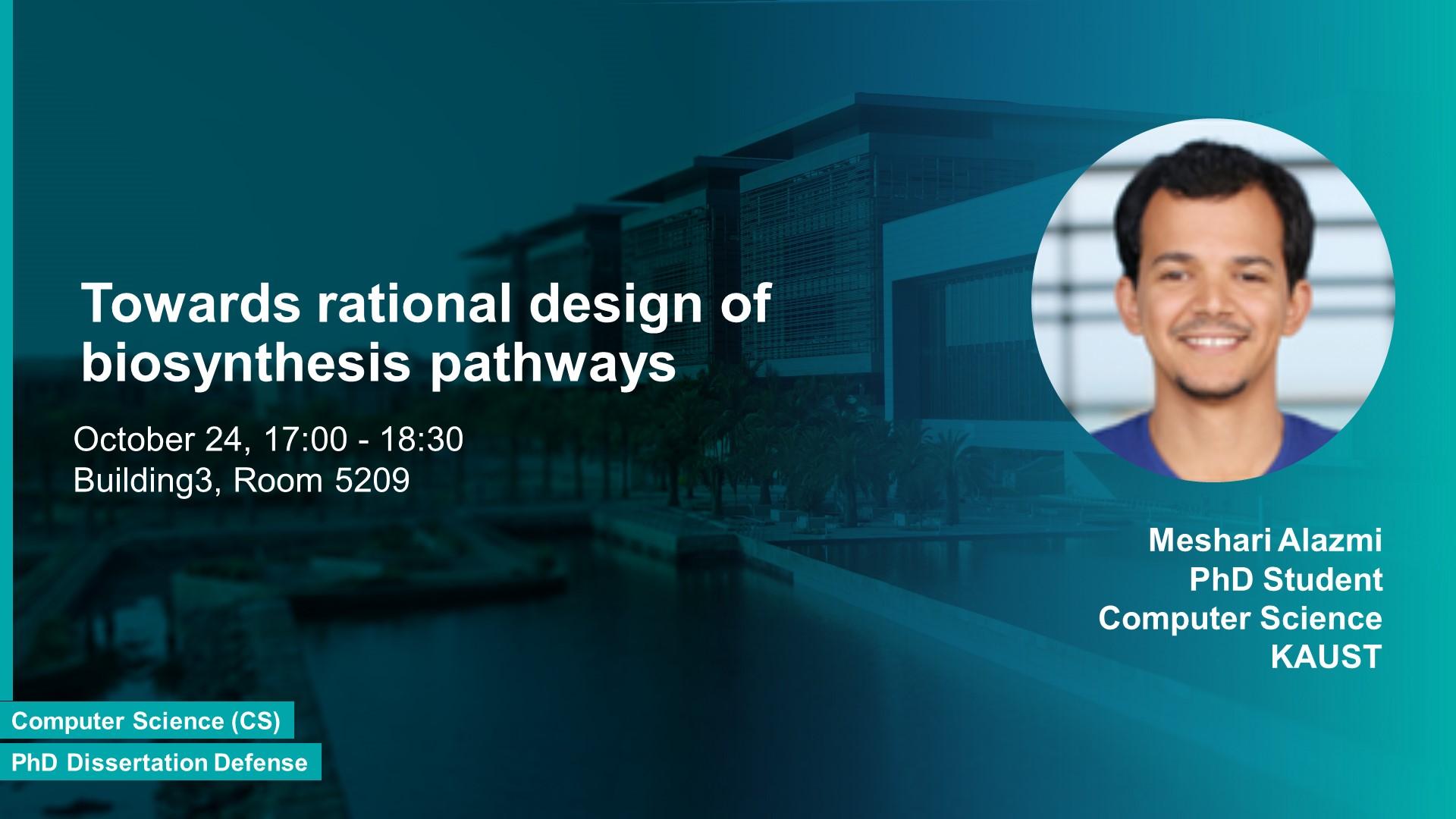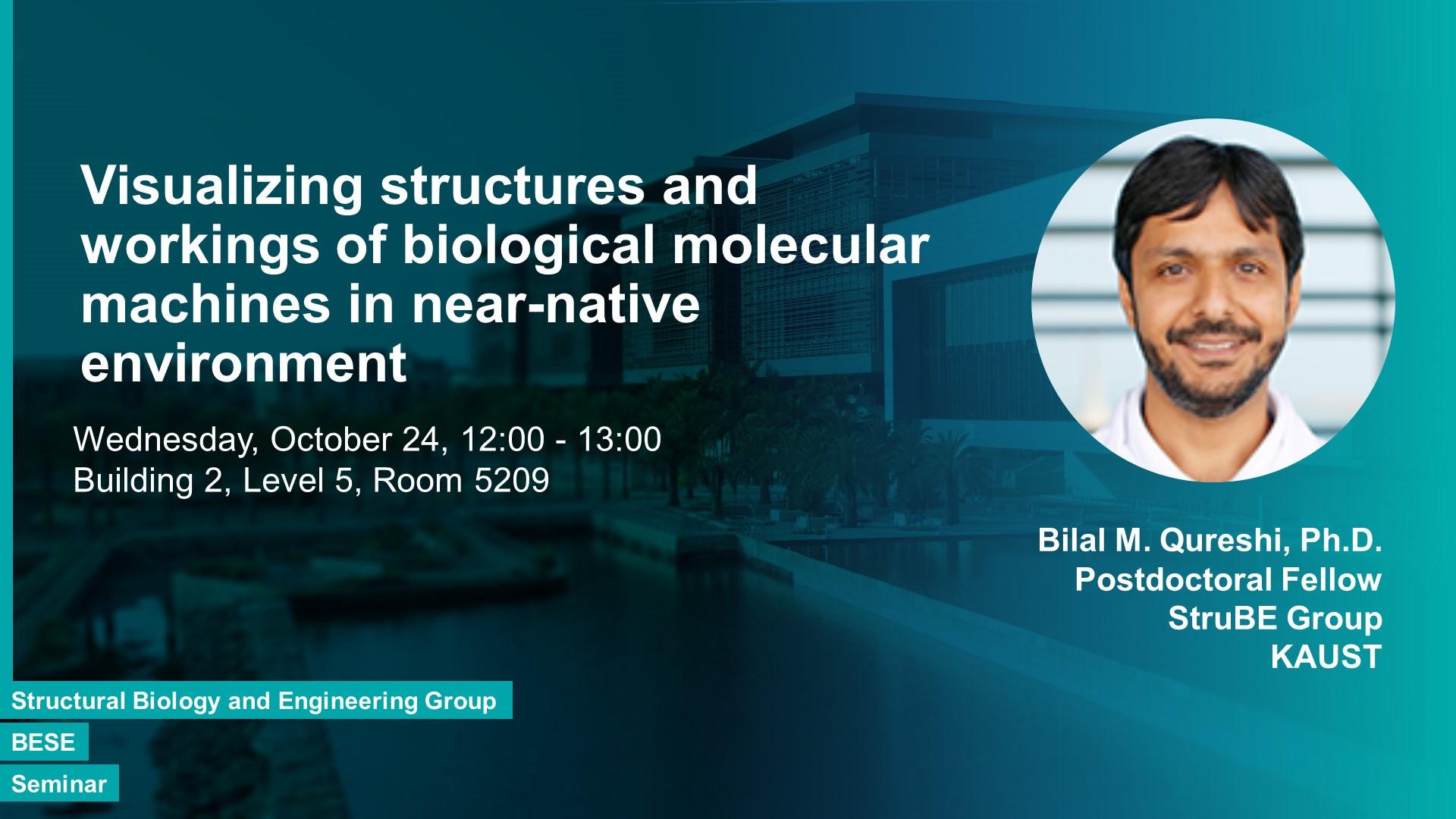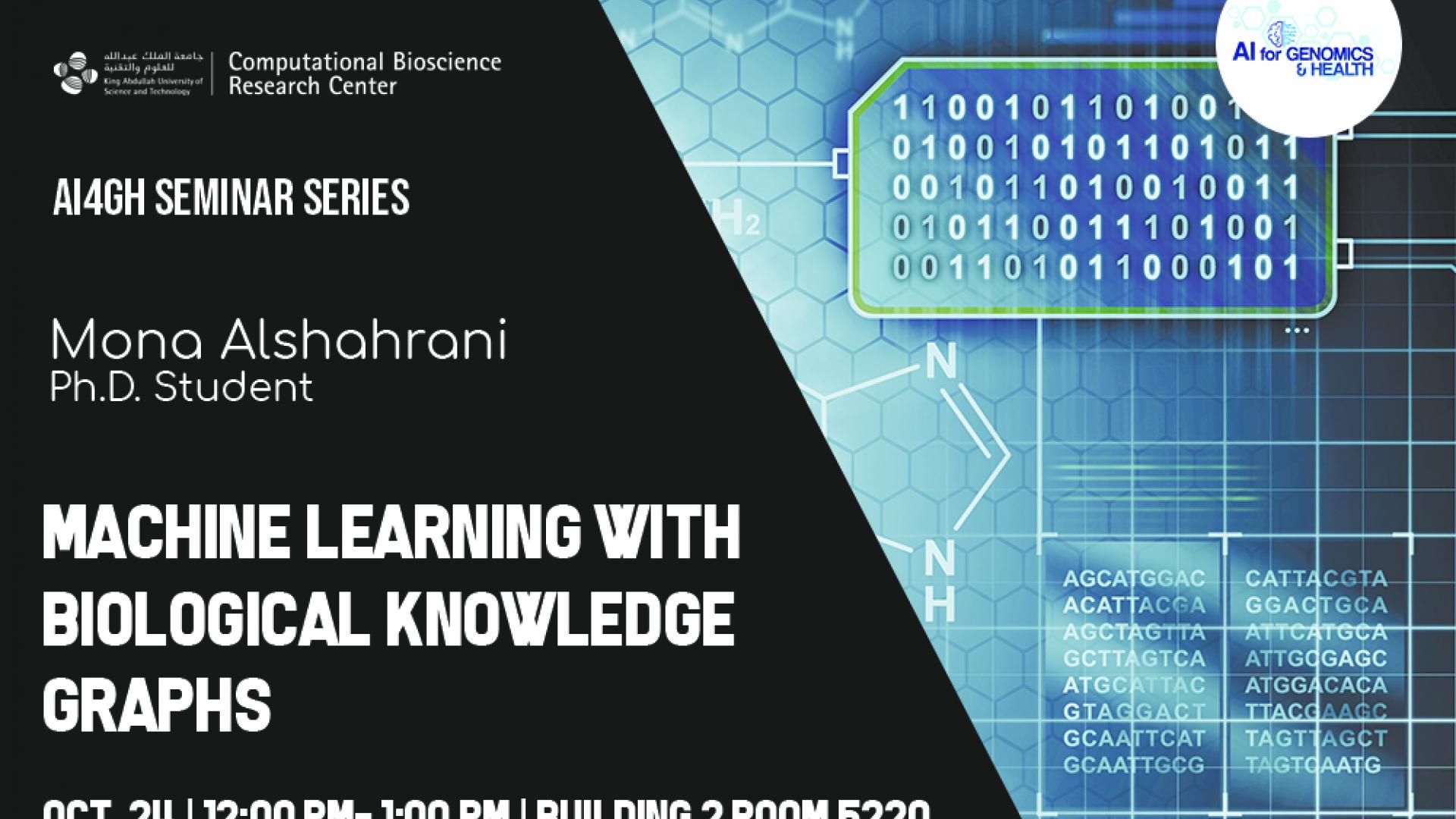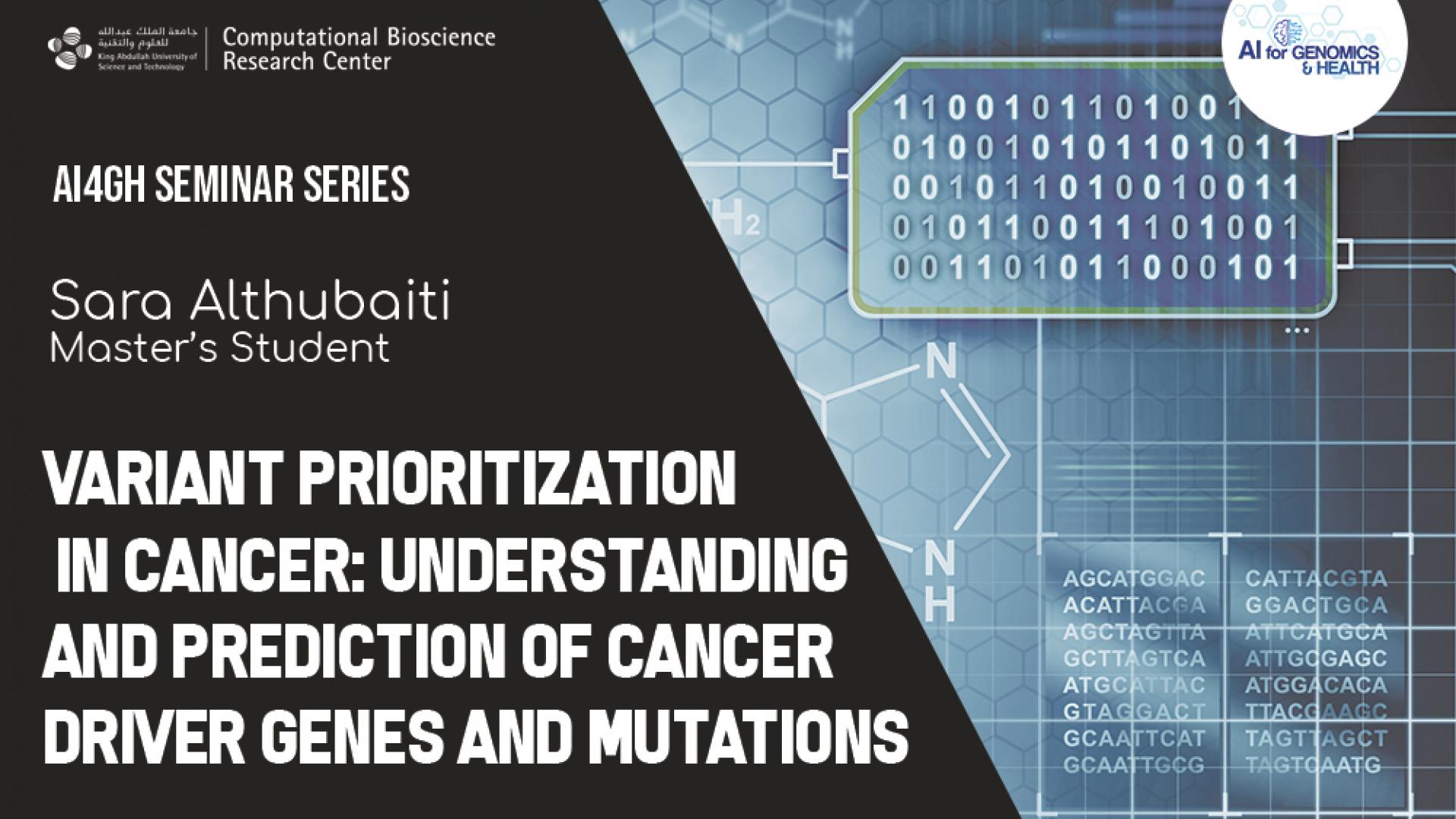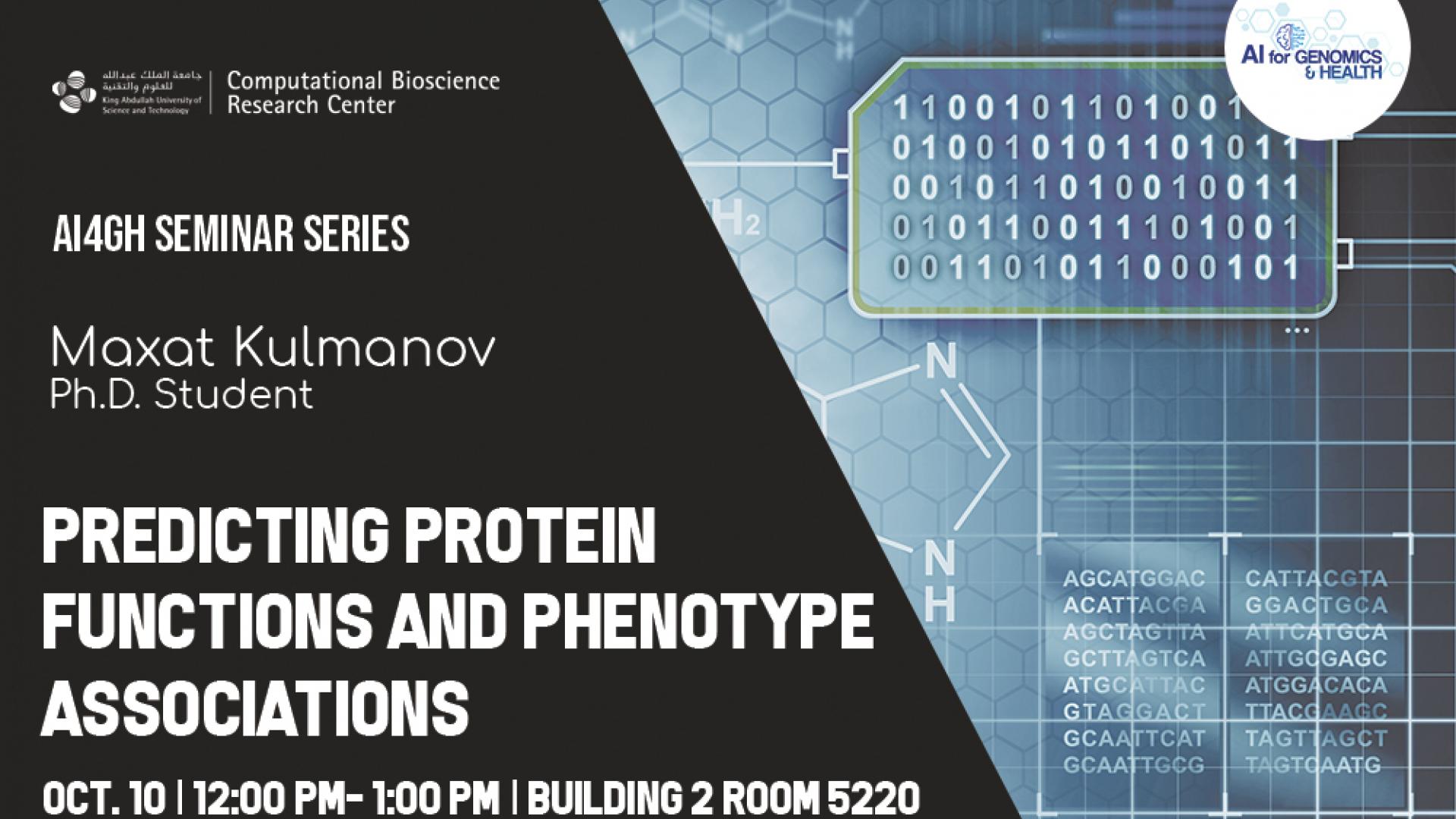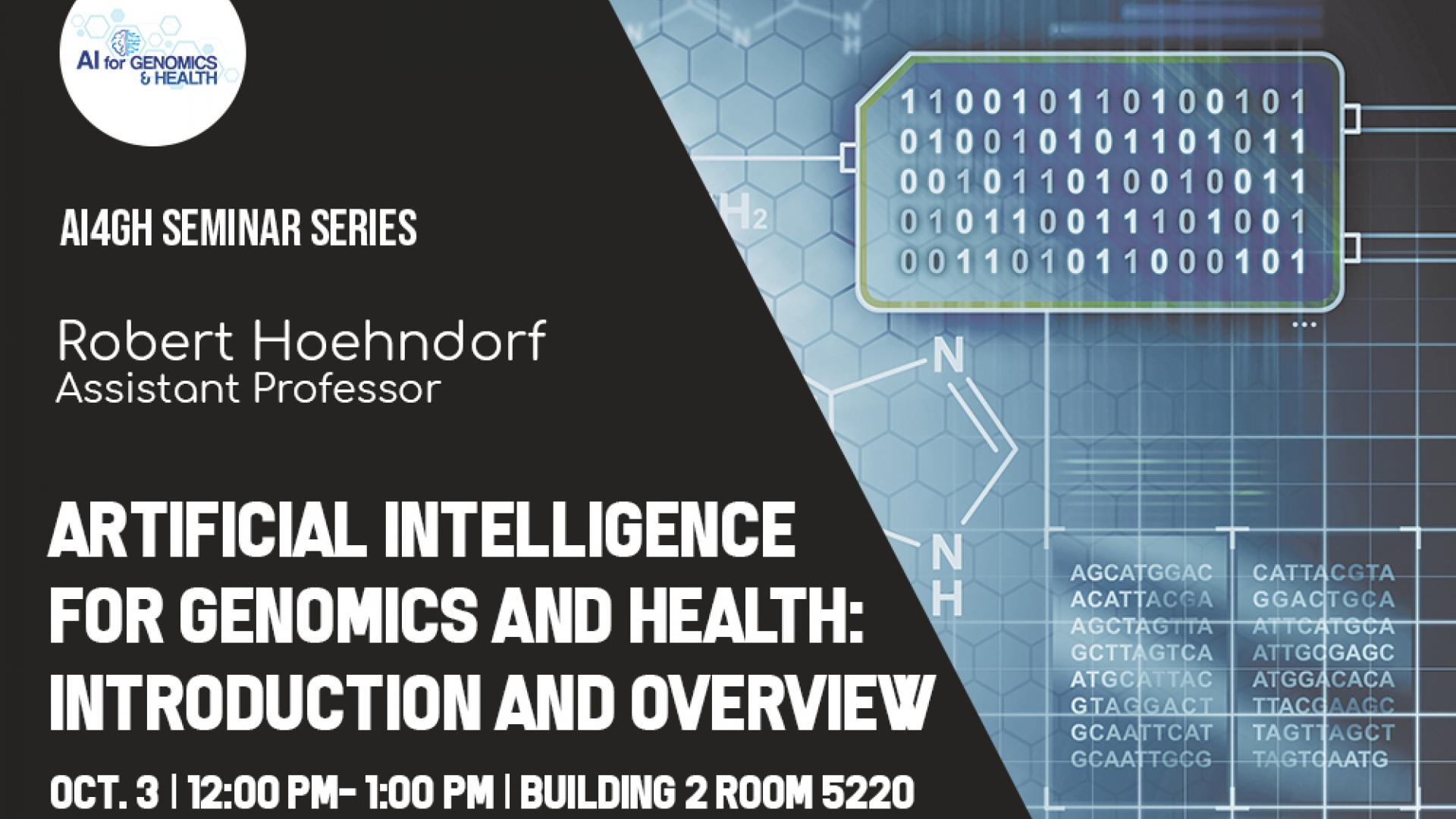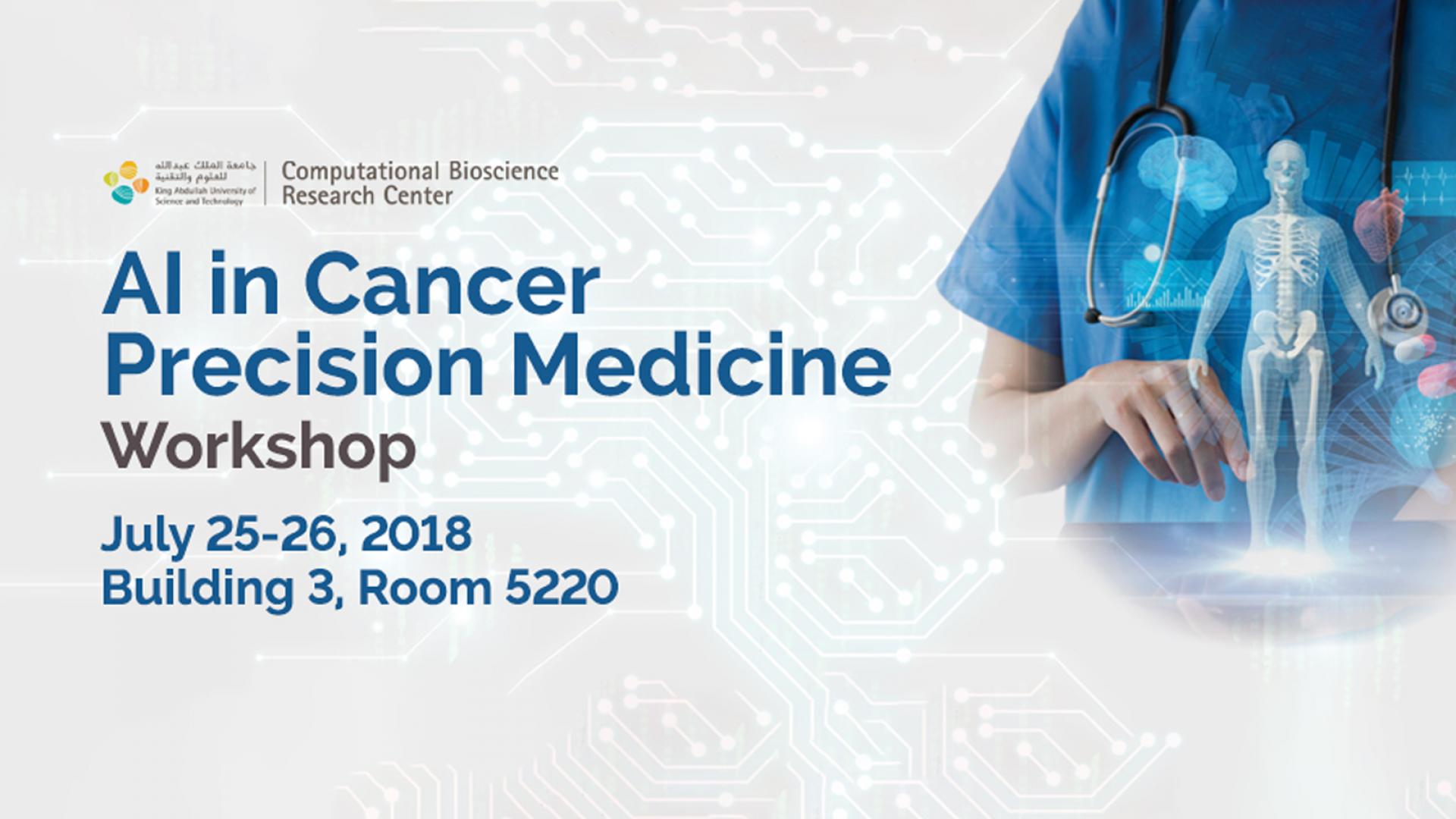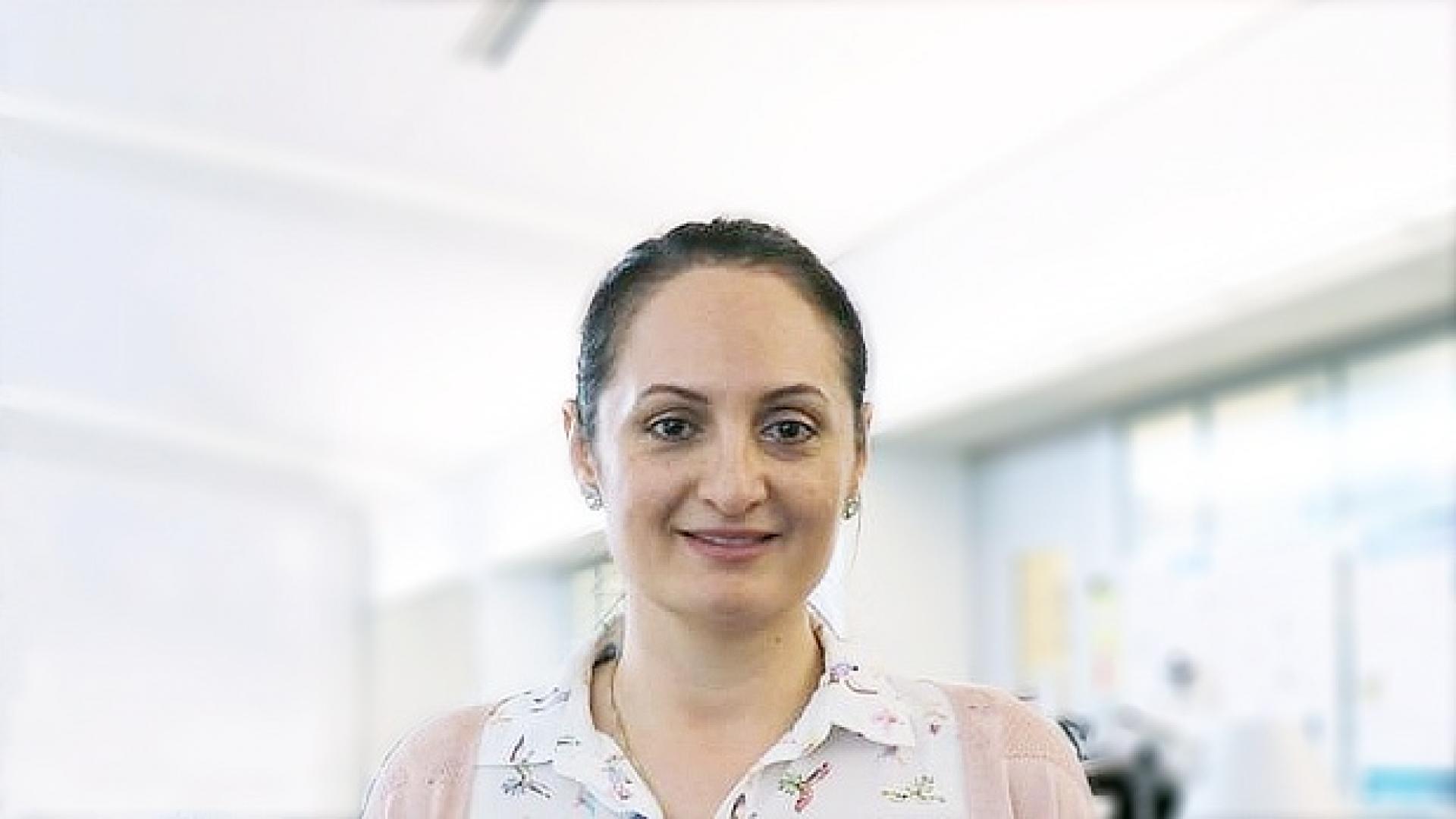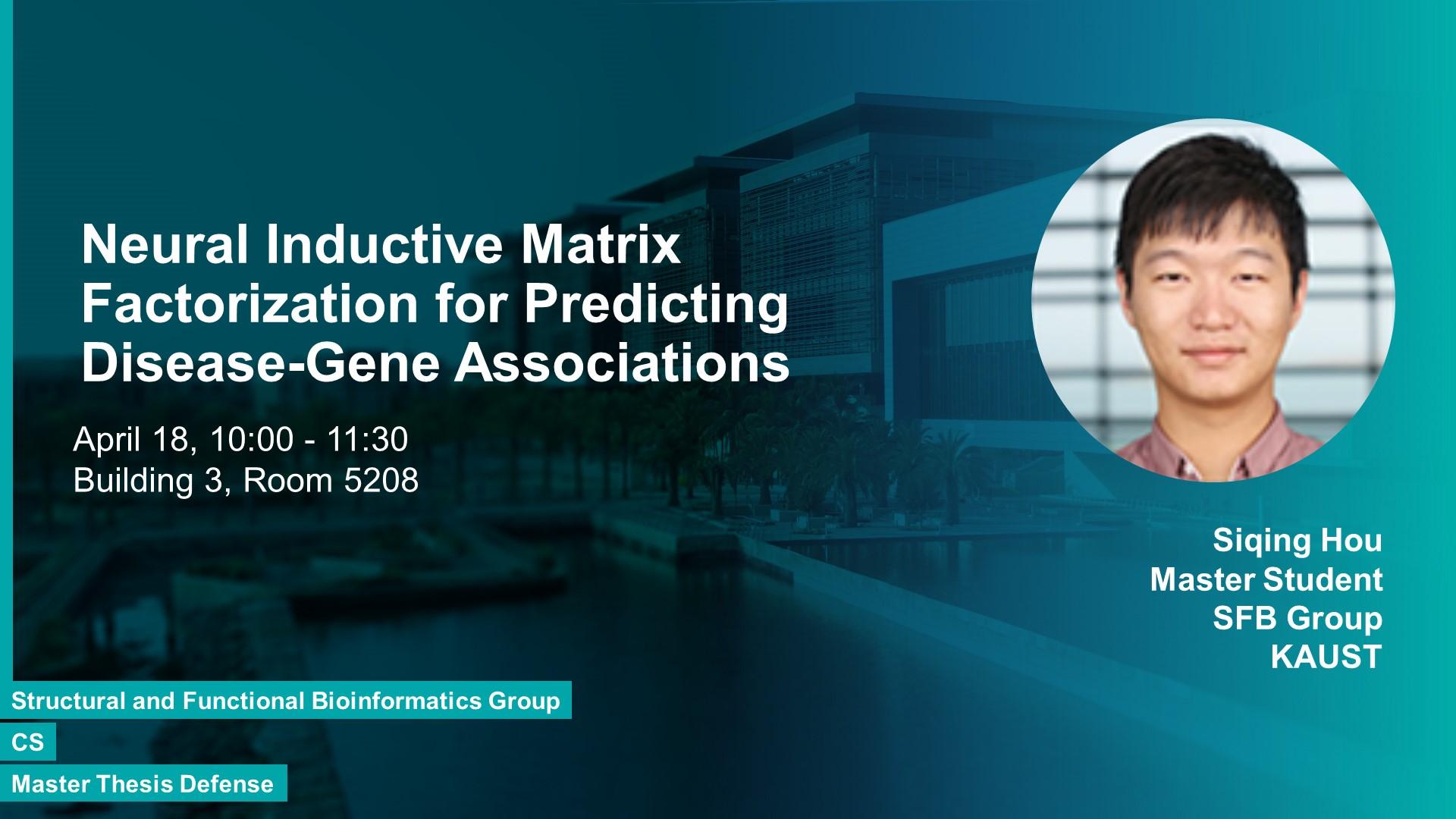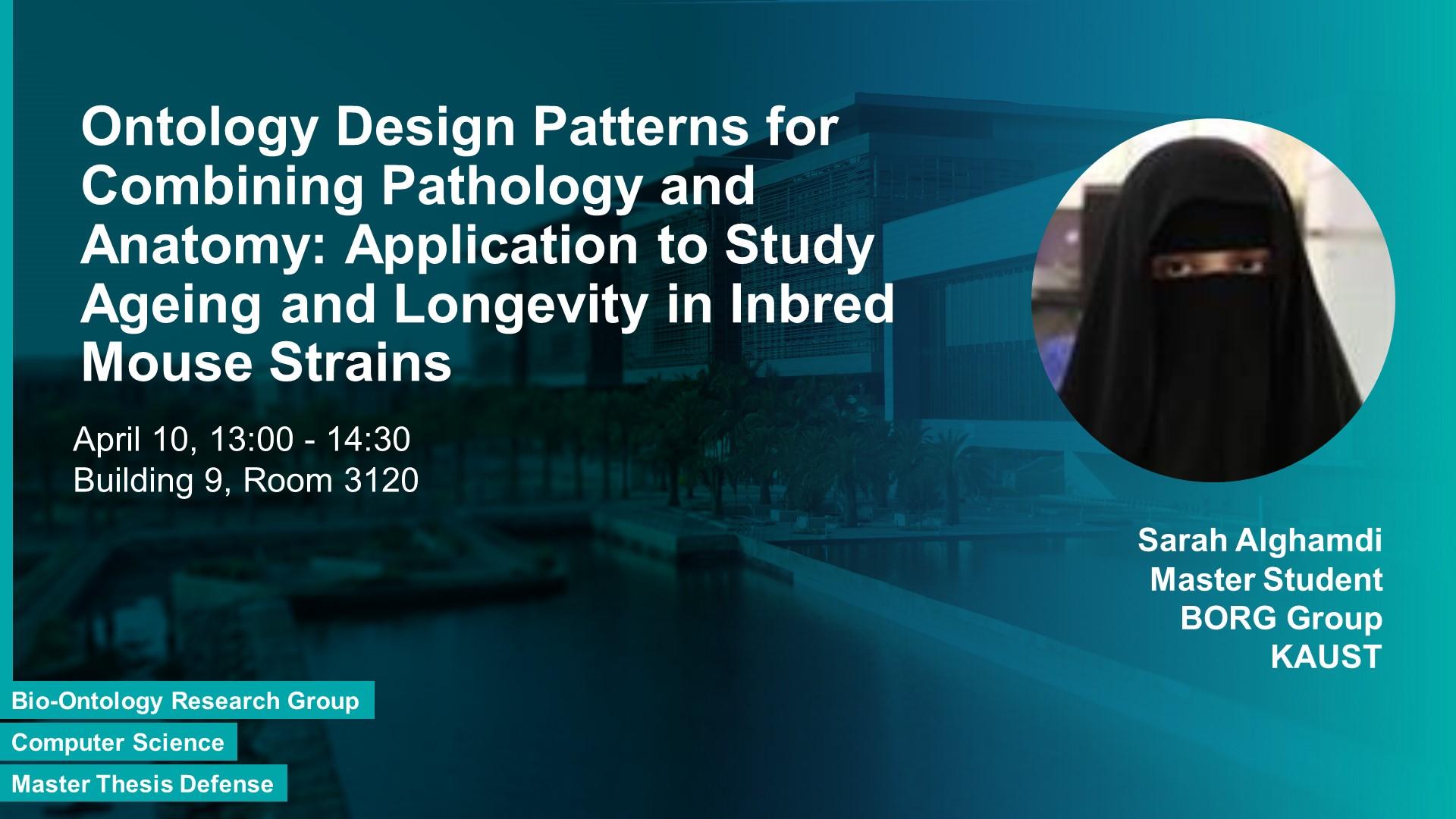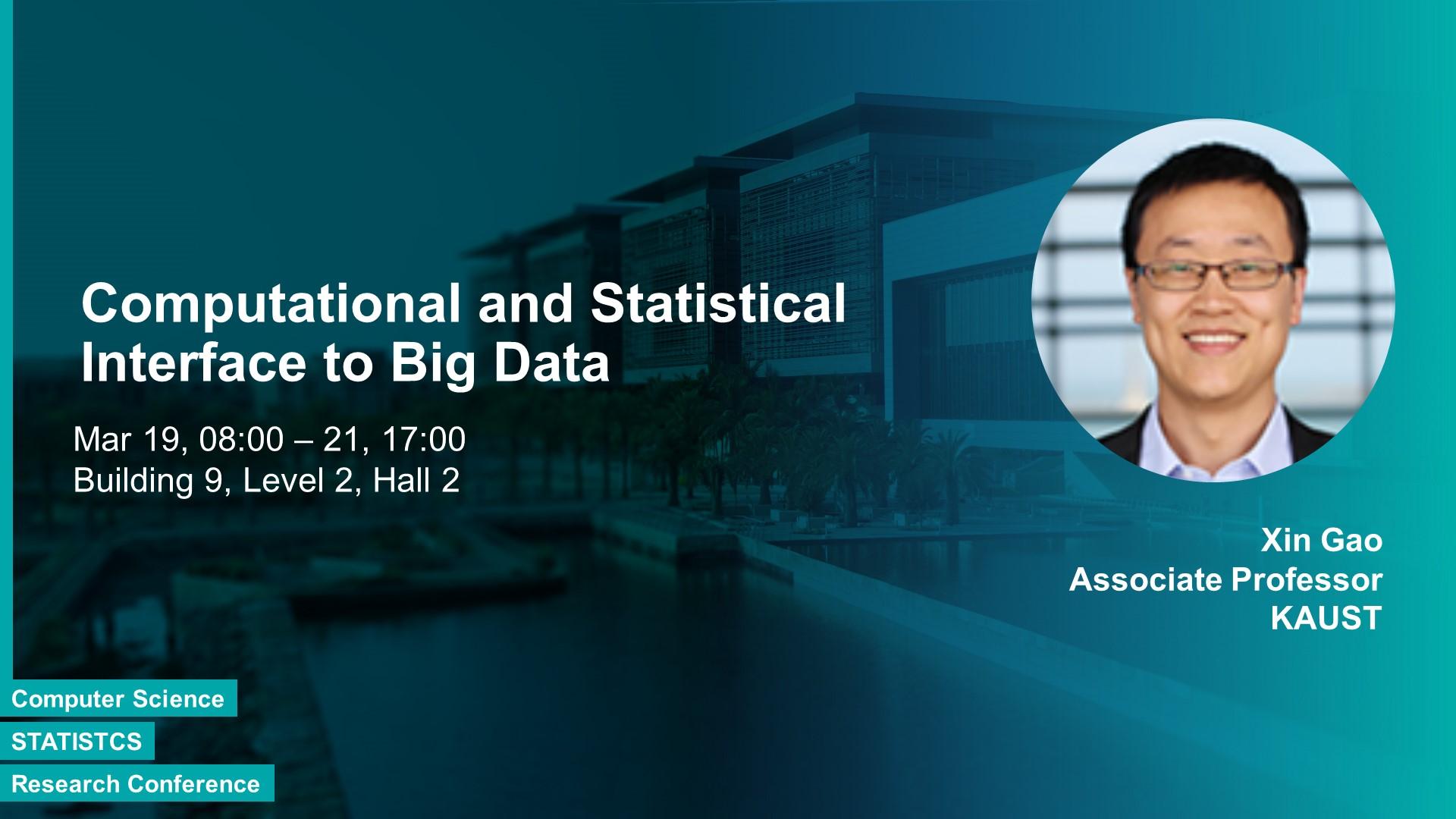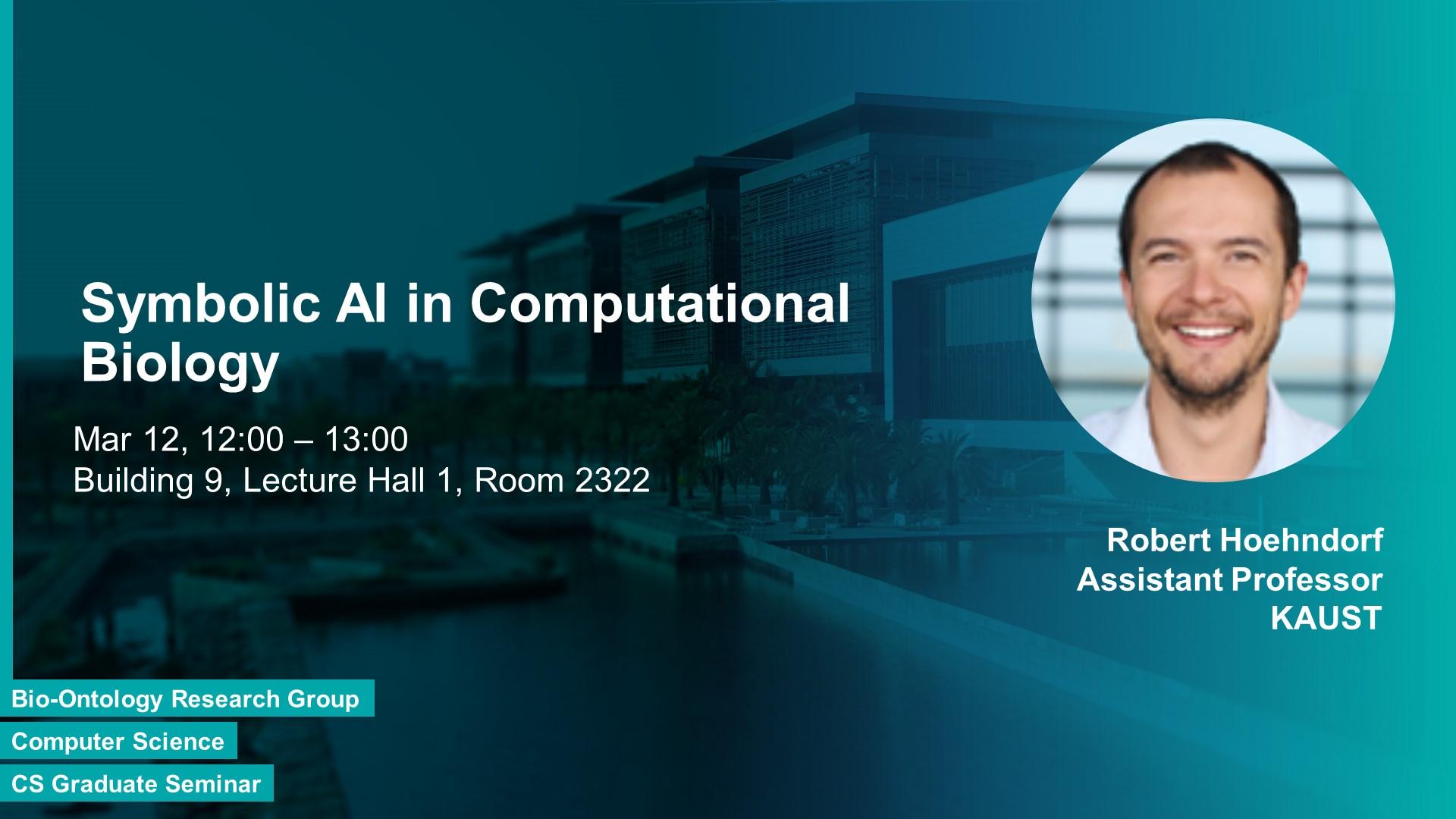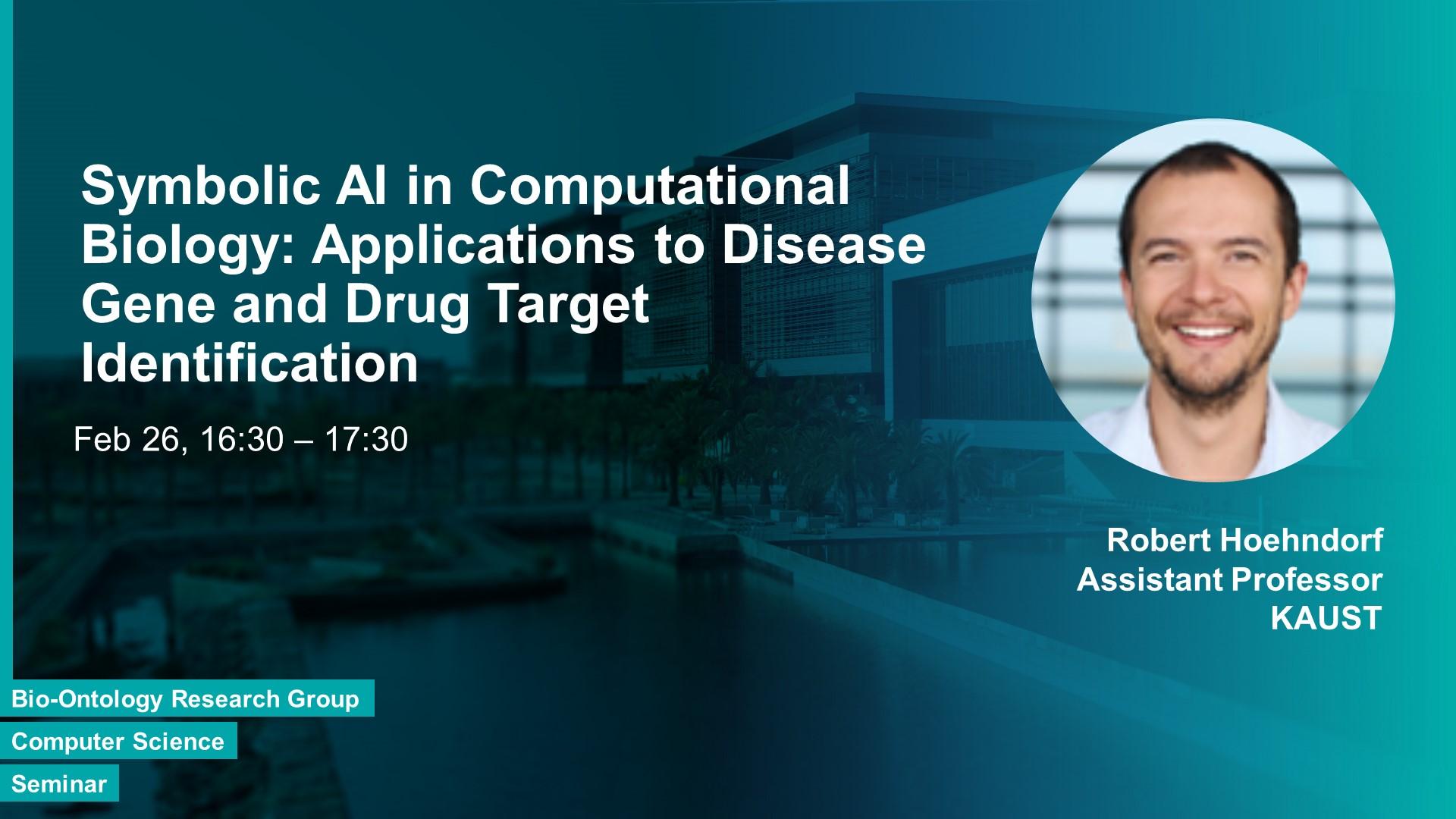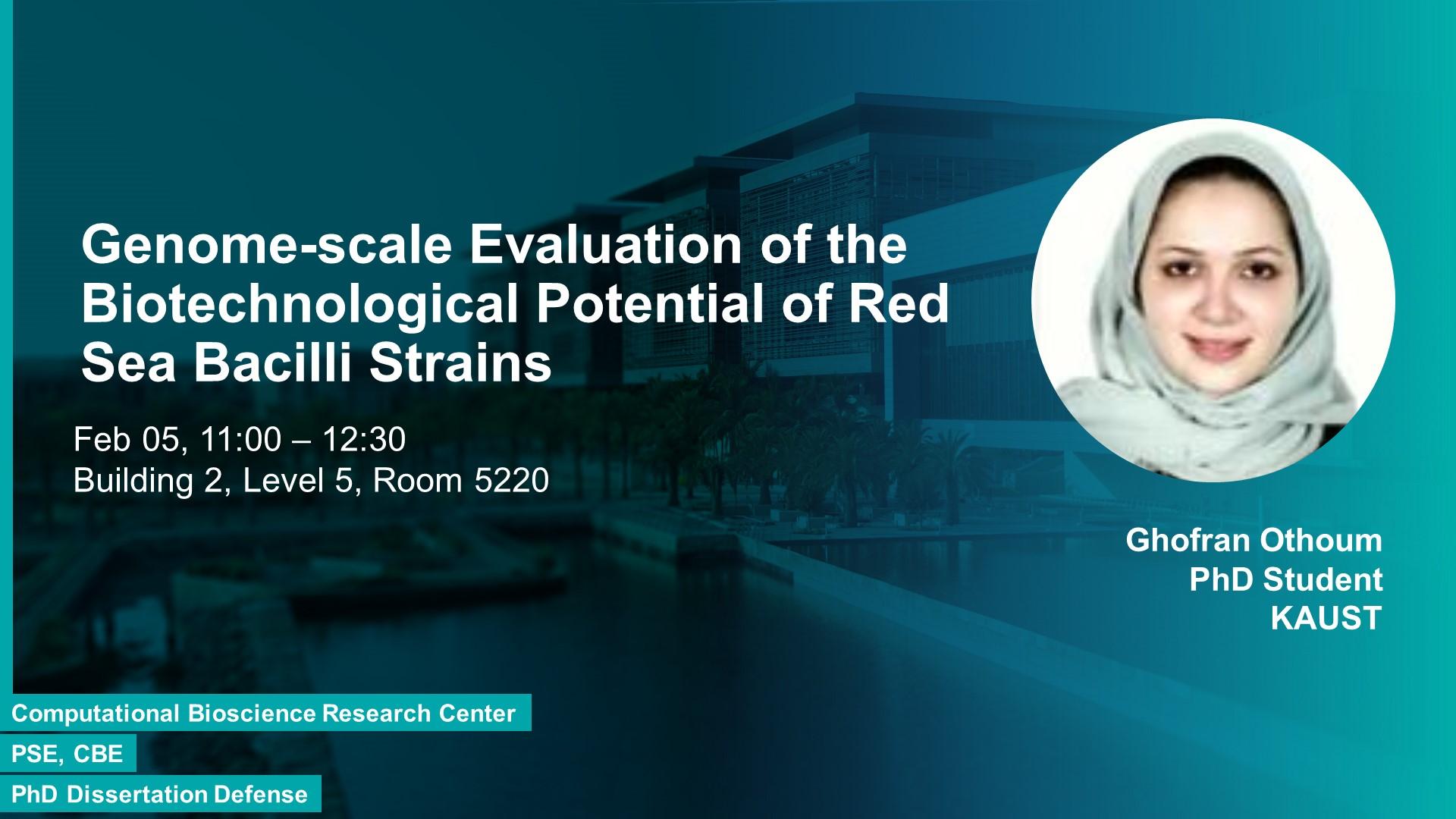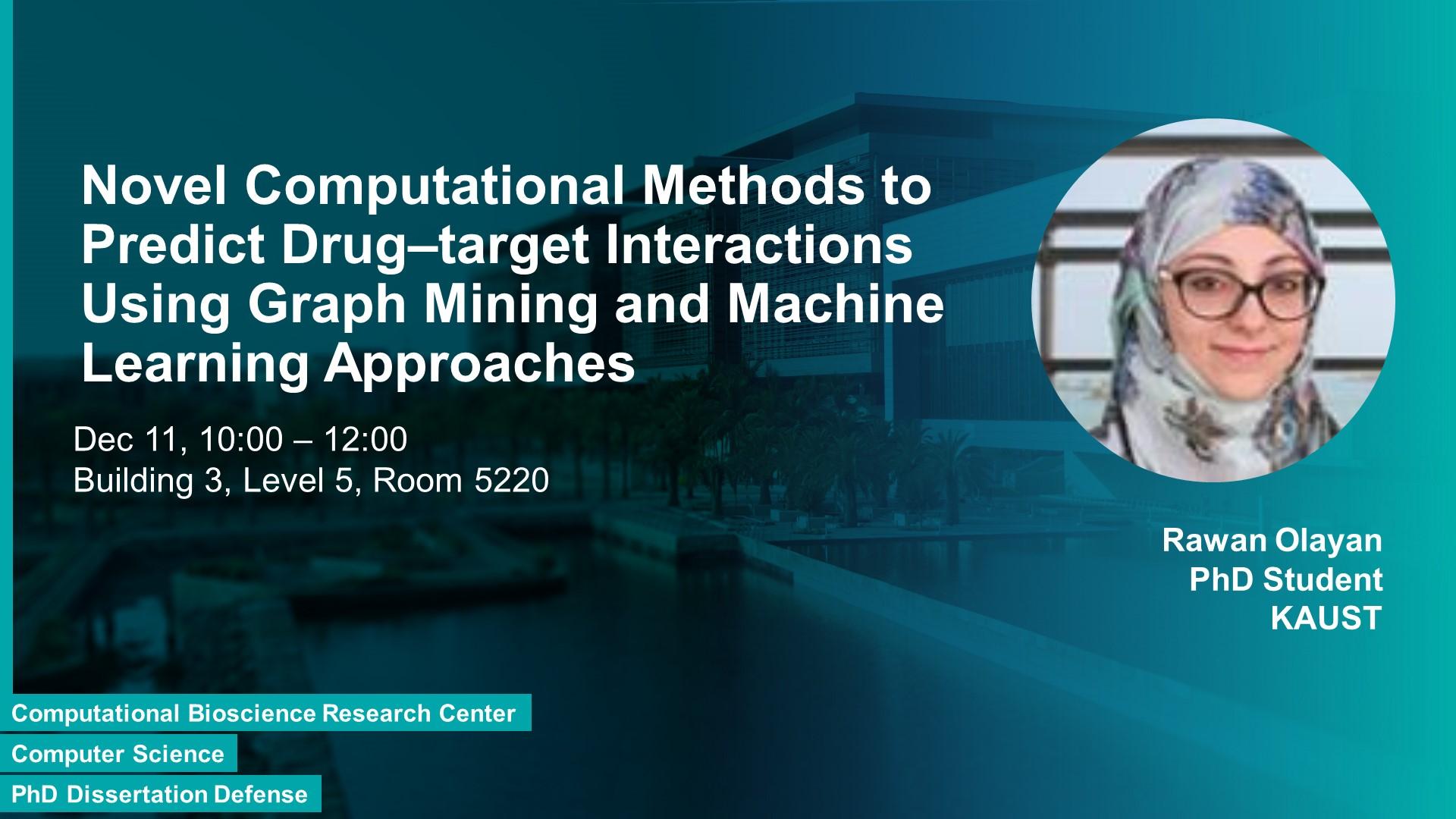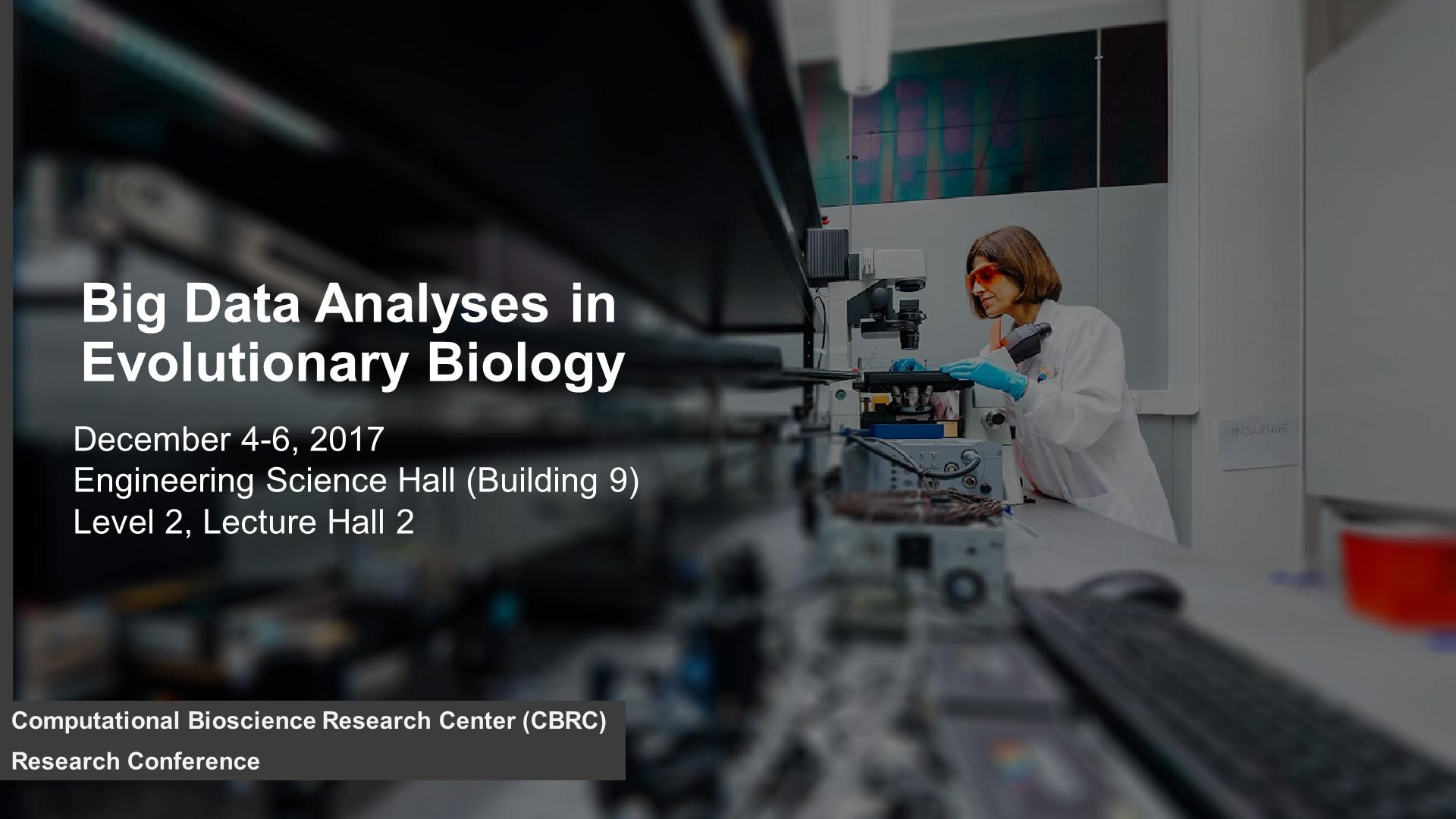Tuesday, November 06, 2018, 10:15
- 11:45
B5, L5 Room 5209
Abstract
This study considers chemical compounds that can exert their a
PhD Student,
Computer Science
Monday, November 05, 2018, 10:30
- 12:30
Building 3, Room 5209
Contact Person
Abstract
Sequencing has identified millions
Thursday, November 01, 2018, 11:00
- 13:00
Building 2, Level 5, room 5220
Abstract
The task of association extraction
PhD Student,
Computer Science
Thursday, November 01, 2018, 08:00
- 10:00
Building 3, Level 5, Room 5209
Contact Person
Abstract
Interpretation and simulation of th
PhD Student,
Computer Science
Wednesday, October 31, 2018, 12:00
- 13:00
Building 2 Room 5220
Contact Person
Interpretation and simulation of the large-scale genomics data are very challenging, and currently, many web tools have been developed to analyze genomic variation which supports automated visualization of a variety of high throughput genomics data.
PhD Degree,
Computer Science
Wednesday, October 24, 2018, 17:00
- 18:30
Building3, Room 5209
Contact Person
Recent advances in genome editing and metabolic engineering enabled a precise construction of de novo biosynthesis pathways for high-value natural products. One important design decision to make for the engineering of heterologous biosynthesis systems is concerned with which foreign metabolic genes to introduce into a given host organism.
Wednesday, October 24, 2018, 12:00
- 13:00
Building 2, Level 5, Room 5209
Structural insights into biological molecules such as proteins at atomic detail h
PhD Degree,
Computer Science
Wednesday, October 24, 2018, 12:00
- 13:00
Building 2, Room 5220
Contact Person
Abstract
Biological data and knowledge bases
Wednesday, October 17, 2018, 12:00
- 13:00
Building 2, Room 5220
Contact Person
Sequencing has identified millions of somatic mutations in human cancers. Identifying and distinguishing cancer driver genes amongst the millions of candidate mutations remains a major challenge.
Research Scientist,
Bio-Ontology Research Group
Wednesday, October 10, 2018, 12:00
- 13:00
Building 2, Room 5220
Contact Person
The amount of available protein sequences is rapidly increasing, mainly as a consequence of the development and application of high throughput sequencing technologies in the life sciences.
Interim Associate Director,
Computational Bioscience Research Center
Wednesday, October 03, 2018, 12:00
- 13:00
Building 2, Room 5220
Contact Person
Abstract
Genomics and health are prime areas
Thursday, August 02, 2018, 09:00
- 11:00
Building 3, Room 5209
Abstract
Here we provide two similarity algo
Dr. Paul Schofield
Wednesday, July 25, 2018, 08:00
- 13:00
B3 Room 5220
Contact Person
We will investigate how novel AI technologies, including progress in machine learning, knowledge representation and reasoning can be applied to improving diagnosis and treatment of cancer in the era of genomic medicine.
PhD Degree,
Bioscience
Wednesday, May 16, 2018, 00:00
- 23:00
"Young Algaeneers Symposium 2018" in Oban, Scotland
Contact Person
Abstract
The use of photosynthetic cells as
Wednesday, April 25, 2018, 08:00
- 17:00
Bio2Vec kickoff meeting Paris, France.
Contact Person
Research Scientist Senay Kafkas will be attending the Bio2Vec kickoff meeting in Paris, France.
MS Degree,
Computer Science
Wednesday, April 18, 2018, 10:00
- 11:30
Building 3, Room 5208
Contact Person
In silico prioritization of undiscovered associations can help find causal genes of newly discovered diseases. Some existing methods are based on known associations and side information of diseases and genes. We exploit the possibility of using a neural network model, Neural Inductive Matrix Completion (NIMC) in disease-gene prediction.
PhD Student,
Computer Science
Tuesday, April 10, 2018, 13:00
- 14:30
Building 9, Room 3120
Contact Person
Abstract
In biomedical research, ontologies are widely used to represent knowledge as well as anno
Monday, March 26, 2018, 09:30
- 13:30
Building 3, Level 5, 5209
Contact Person
About
We are witnessing today an enormous increase in the volume and complexity of data across a
Program Chair,
Computer Science
Monday, March 19, 2018, 08:00
- 17:00
Building 9, Level 2, Hall 2
Contact Person
We are now in the fourth paradigm of science: Data Science. The massive amount of structured and unstructured data has posed new challenges and opportunities to the fields of computer science and statistics. Traditional computational and statistical methods for data storage, curation, sharing, querying, updating, visualization, analysis, and privacy have been shown to fail in the big data scenario due to the unprecedented volume, velocity, variety, veracity and value of the big data. This conference will bring together a number of prominent researchers in Computer Science and Statistics with common interests and active research in big data, as well as the researchers at KAUST who regularly generate or face big data, such as those in bioscience and red sea research.
Interim Associate Director,
Computational Bioscience Research Center
Monday, March 12, 2018, 12:00
- 13:00
Building 9, Lecture Hall 1, Room 2322
Contact Person
About
The life sciences have invested signif
Interim Associate Director,
Computational Bioscience Research Center
Monday, February 26, 2018, 16:30
- 17:30
The University of Cambridge in the United Kingdom
Contact Person
Abstract
KAUST Assistant Professor Robert Ho
Friday, February 23, 2018, 09:00
- 16:30
University of Birmingham, United Kingdom
Contact Person
KAUST Assistant Professor Robert Hoehndorf will be a keynote speaker at the 8th BEAR PGR Conference & Users Forum at the University of Birmingham in the United Kingdom.
Monday, February 05, 2018, 11:00
- 12:30
Building 2, Level 5, Room 5220
Abstract
The increasing spectrum of multidrug-resistant bacteria causes
Monday, December 11, 2017, 10:00
- 12:00
Building 3, Level 5, Room 5220
Abstract
Computational drug repurposing aims
Monday, December 04, 2017, 08:00
- 17:00
Engineering Science Hall (building.9), Level 2, Lecture Hall 2
This event is organized by CBRC with financial support from the KAUST Office of Sponsored Research
